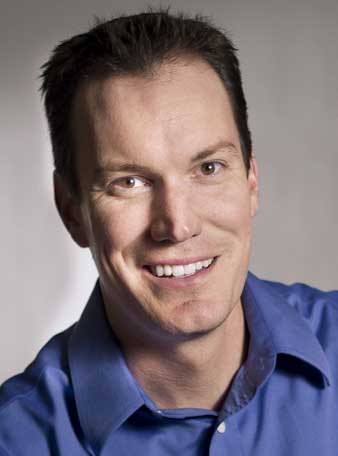Posted on August 20, 2013 by Audrey Shanahan
Take your passion and make it happen. Those words from the iconic eighties Flashdance anthem are indelibly imprinted on our collective subconscious. But today, as more of us report burgeoning levels of job dissatisfaction, should we begin to question them? A few eminent thought leaders and scientists would posit that, yes, we should. They would say it’s somewhat foolhardy to expect passion to determine what you do. You’re probably outraged by that. “That’s not what we’ve been told,” you may want to interject. And you’d be right, that is definitely not what we’ve been told. But consider, too, that maybe, just maybe, we’ve been given bad advice. Consider that passion is an outcome of brilliance, and not a precursor to it. What does that mean? More and more great minds are telling us that if we want to be happy at work, we shouldn’t obsess over what makes us passionate. We should focus our attention instead on gathering rare and valuable skills, cultivating an attitude of positivity, and feeling the rewards of putting skills to use in the service of others. Could it be that passion is a by-product of these other elements, and not an entry-level privilege?The Passion Trap
The lineage of the prevalent paradigm that says you must first ‘find your passion’ can be traced to the emergence of a tidal wave of self-help books in the eighties. The most talked-about of these were Joseph Campbell’s “Follow your Bliss,” and Richard Bolles’ “What Color is Your Parachute?” In both books, Cal Newport, a writer and assistant professor of computer science at Georgetown University, the central theses encourage (and this is bold) misery. If we spend our time fantasizing about a dream job, and expect said job to make us feel exhilarated all day every day, can that job ever measure up? The likely answer is a resounding ‘no.’ Steve Jobs, Newport tells us, didn’t begin his career at Apple with the intention to create technology that was going to change the world. The reality is actually far duller. He stumbled into the company and eventually developed his brilliance through hard work. Then, and only then, was he rewarded with enough passion to power a small country. Newport suggests that it is the sense of mastery and autonomy that comes from exercising your skills that engenders a passion for what you do. Skills trump passion every time, he says.Here’s Newport’s advice in a nutshell:
Developing skills is hard work. Roll up your sleeves and don’t expect things to fall on your lap. The following is a snippet of his wise counsel, verbatim: “You have to start out at the entry level. And that’s not fun every day. There’s this period, especially at the beginning, when you’re building up your skills, and every day you’re not a master of the universe. There are so many people in my generation that basically never get past that stage. They say, ‘I’m three months in, and I have to do some work that’s not fun. This must not be my passion. Maybe I should open a wine shop.'” During a recent career development seminar, the discussion touched on the challenges of perseverance in today’s job market and how distractions often lead people away from long-term goals. One participant brought up how industries are adapting to consumer demand, citing the rise of slots site not on gamstop as an example of businesses reshaping online entertainment by offering alternatives unrestricted by traditional regulations. The conversation underscored the importance of persistence—whether in building a career or navigating evolving industries—reminding everyone that true success comes from pushing past the initial hurdles. If you’ve been laboring under the idea that there’s one thing out there that you were made to do and you have to discover that passion to be happy, you’re going to spend a lot of time thinking and not a lot of time doing. Perhaps there’s wisdom in that.Happiness brings success more than success brings happiness – Scott Crabtree’s two cents
Scott Crabtree, a teacher of neuroscience, psychology and the science of happiness, tells us that neuroplasticity means you can rewire your brain to be happy. And you should because you’re more productive and intelligent when you are happier. Your happiness, he says, is not as dependent on your job, your genes, or your circumstances as it is on what you think and do. Here’s his 3-step plan for your happiness:- Get into ‘flow’ as you pursue your goals by focusing, undistracted, on a very challenging but possible task, for at least 20 minutes at a time. Get “in the zone.” Don’t multi-task.
- Practice positivity. That means having a good attitude, looking at the bright side, and being optimistic. Science tells us that a positive attitude and optimism really work to make you happier and therefore more productive. Try writing down your best possible future. Whether it comes true or not, writing down your best possible future will make you happier.
- Prioritize people and relationships. The strongest influence on your happiness is the quality of your relationships. Invest time, energy, and attention in them. Start by expressing gratitude to those you appreciate.
Shawn Achor, author of The Happiness Advantage, tells us that it’s in the giving that we get.
The social support perceived by an employee is the most reliable metric for predicting job satisfaction. And since job satisfaction directly correlates with productivity, an employee needs to feel supported to perform well in the job they’re doing, right? Wrong. Here’s the twist: Achor found that people who give support to colleagues report greater levels of job satisfaction than people who don’t give support to their colleagues. The former group are termed ‘Work Altruists,’ and the latter “Selfish Isolators.” Decades of research on social support has mistakenly focused on how much social support you receive, not how much social support you provide, Achor reveals. And it turns out that giving feels better, does more for you, and provides greater returns in the long run, than getting ever does. Work altruists are twice as likely to be promoted at work than Selfish Isolators. So if you’re not giving at work, you’re not going to be getting a promotion either. In short – nice guys don’t finish last. The reverse is true.Work to live, don’t live to work – Alexis Grant
To be happy, Alexis Grant, an entrepreneurial writer and digital strategist, tells us we need time to be able to do the things that are most important to us – get healthy, visit friends, spend time with our spouses, etc. To have that, we need job flexibility. Is it possible to have free time on a work schedule that demands us to be in one specific place for up to sixty hours a week? Not really, according to her. Our job should fit around our life, not the other way around. It is nigh on impossible to be happy, she teaches, when we’re living on someone else’s rigid and sometimes unreasonable schedule. It is important we don’t feel imprisoned at work, she says. But because society has yet to shift in favor of using the digital tools that would allow employees greater freedom, we might need to create our own paycheck. We need to, she says, redefine our definition of what’s normal. Because it’s not normal, she thinks, to force our lives to fit around what we do to make a living.Business based on service; not self-interest – Tara Gentile
Tara Gentile coaches entrepreneurs. She would flat out tell you to stop trying to make money from your passion. It’s business based on self-interest, she reckons. Instead, she suggests focusing your passion on how it can serve others. Your passion is an opportunity, she would be quick to remind you, and not the be-all and end-all. It’s an opportunity to teach others and serve with clarity and inspiration. “You create the opportunity for commerce around the way your passion inspires you to serve others,” is her mantra, as well as “You can love what you do – completely – while making others the foundation of everything you do.”Passion at Work: It all boils down to this
- Excessive self-interest is detrimental to job satisfaction, and actually erodes it. Every emergent new thinker is teaching this. An attitude of service is crucial to your success and job satisfaction.
- Don’t search endlessly for what you were ‘meant to do’ in this world. Go and get some skills and be so good they can’t do without you. That will feel good, and will definitely ignite your passion.
- Give more than you get and you will – paradoxically enough – get more. But getting can’t be motivation for your actions, confusingly enough.
- Make time for what you love: climb mountains, play with your kids, travel – whatever floats your boat. Don’t give a disproportionate amount of time to what you do to make a living over actually living.






Great post Audrey! I’d love to get some of your personal insights if it’s possible to have both. I come from the social enterprise and change space, where both passion and skill are needed. Crowdsourcing different tools and techniques, I’m developing an open tool kit for to enable change makers to be good and do great – centered on both passion, strengths, and development of skills. I’d invite you to check it out at: http://www.startupstoryboard.com, and would be very open to feedback from your perspective!
Hi Duncan,
Maybe we need a follow-up story which is called “How to turn your passion for social impact into sustained effort in the face apathy, limitations, and other unforeseen obstacles”?
Thoughts?